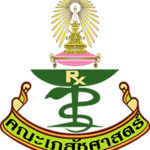Understanding Bipolar Disorder with Chula Pharmacy

Know about medicine with Chula Pharmacy: Bipolar disorder
Today, people have a better understanding of mental illnesses, whether it's depression, panic attacks, or other mental illnesses. However, even though there seems to be more understanding, there are still some misconceptions that deviate from the truth. One obvious example is bipolar disorder.
Bipolar disorder is one of the most misunderstood mental illnesses. If we see a person who is very bright and cheerful in the morning, but in the evening, he is depressed, like his battery is low, does not talk, and answers questions with one word, this is unlikely to be bipolar disorder. But it may be because he has been working too hard.
Another common case is that yesterday, she was as kind as an angel. She could ask for anything, but today, when she meets me again, she has turned into a devil. She is irritated and annoyed with everything. She doesn't like anything. She doesn't like anything. This is not bipolar, but rather, her basic personality is inconsistent.
What are the real symptoms of bipolar disorder? In case readers wonder if they have this disease or if they wonder if people around them, adults in the house or their bosses have it.
Let's get to know this disease. The symptoms of this disease are mood swings, between being extremely happy or extremely aggressive, which may be called an upbeat mood, alternating with a depressed mood. The changes that occur are usually not related to the situation. During the upbeat or aggressive mood, the patient will have abnormal thoughts or perceptions about themselves, thinking that they are more capable and important than reality. They think about doing all sorts of things all the time, refuse to sleep, talk a lot, talk fast, talk nonstop, change the subject constantly, have no concentration on any one thing for a long time, start doing many things but do not succeed in anything, spend extravagantly, or may become addicted to gambling. Some people have a bad temper and anger, leading to physical harm or violence.
When in a state of low mood, the symptoms are very similar to depression, that is, feeling bored, lethargic, not wanting to do anything, seeing everything in a negative light. In severe cases, one may feel like ending one's life. The duration of the alternation between the two poles is uncertain. It may be days, weeks, months or years. But one thing is for sure, the changes are often not related or causal to external environmental factors.
The cause or risk factors for this disease are still unknown. Genetics or a family history of bipolar disorder is one risk factor. Other risk factors include chemical abnormalities in the brain, excessive stress from work or personal life.
Of course, having an unstable mood, changing back and forth, sometimes good and sometimes bad, in a way that neither you nor others can predict, will have a negative effect on both yourself and those around you. But in bad luck, there is good luck: doctors can diagnose this disease by asking about the patient's and relatives' history, along with conducting certain tests, and treating with oral medication for only about 2-8 weeks. Most patients will have enough improvement to live a normal life. The main medication used is mood stabilizers. Sometimes anticonvulsants are also given. Other additional medications used include antidepressants and anti-anxiety medications.
Some antipsychotic drugs can also be used. The thing to be aware of is that these drugs, in addition to being used strictly as prescribed by a doctor, also have a risk of interacting with other drugs and causing harm. Drug users or those caring for patients must be careful when using other drugs. They must always consult a pharmacist or doctor before using any drugs, including herbal supplements, together with the drugs that the patient is taking, especially patients who are taking a drug called lithium carbonate.
In addition to taking medication, patients should take care of themselves by getting enough rest, exercising appropriately, avoiding caffeinated or alcoholic beverages, and abstaining from using other addictive substances. If you feel better, do not stop or reduce the medication on your own. As for those taking care of patients, they should understand the progression of the disease, ensure that patients take medication as prescribed, observe any unusual symptoms, and find ways to prevent risks as much as possible. Encourage patients to receive treatment according to the plan and take good care of themselves so that they can live a normal life.
Mental illness is a common illness and is becoming more common every day. The main point that the author would like to emphasize is that we should not use illness as a joke to create misunderstandings, such as calling people who are basically fickle-minded, who want to do something in the morning and want to be that way in the evening as bipolar, or people who behave one way in front of one person but behave another way when they are with another group of people as bipolar, because it is not and is not even close to symptoms of the illness. It also makes people think that these traits are illnesses, even though the above traits do not go away with medication, and are not at all like bipolar people.
Assoc. Prof. Dr. Nattada Areepiam and Assoc. Prof. Dr. Bodin Tiwasuwan
Faculty of Pharmacy Chulalongkorn University
เราใช้คุกกี้เพื่อพัฒนาประสบการณ์การใช้งานเว็บไซต์ของคุณให้ดียิ่งขึ้น คุณสามารถจัดการความเป็นส่วนตัวของคุณได้เองโดยคลิกที่ ตั้งค่า
